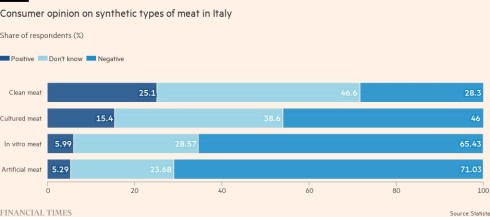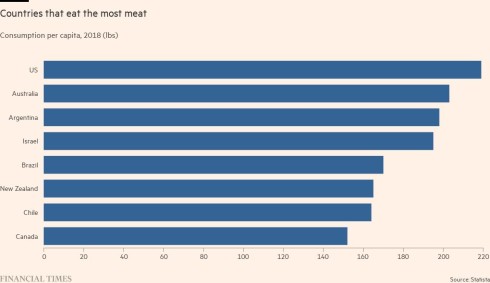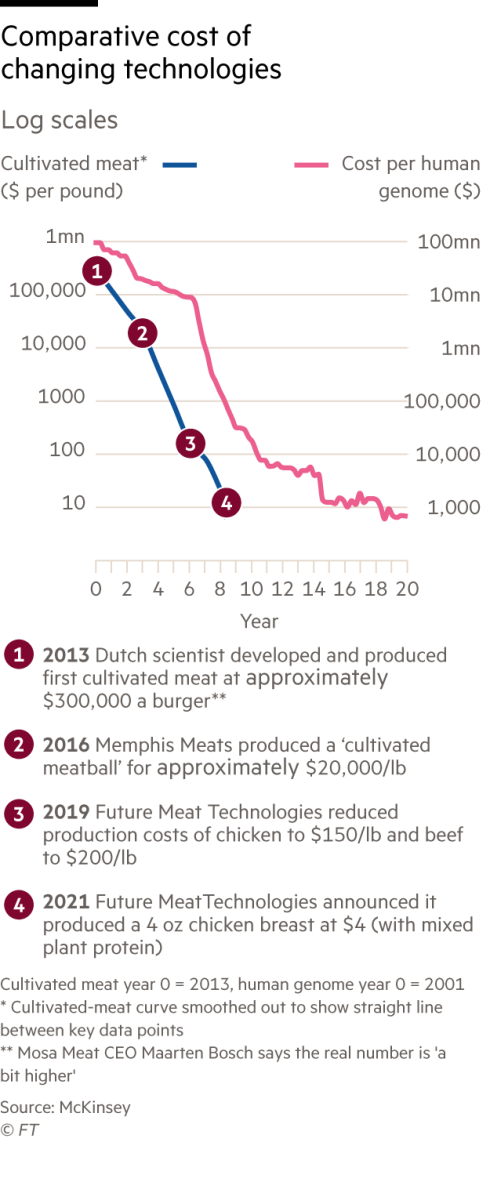Lab-grown meat: Italy’s disapproval hard to swallow
Italy has said no grazie to lab-grown meat. That is understandable, given the pride the country takes in its traditional food. But, longer term, the choice is unlikely to be between a gourmet Tuscan Chianina burger or the cultivated variety. Instead it could be between a cultured patty or an empty bun.
Prime Minister Giorgia Meloni’s ban on lab-grown meat and animal feed may simply mean her rightwing government seeks to protect local farmers. But there does not seem to be a need for that quite yet.

Cultured meat — made in a lab by growing animal cells in a protein and sugar soup — is technically viable and even approved by the US Food and Drug Administration. A lab in Australia has even grown a giant meatball using ancient mammoth DNA. Start-ups are raising money, from the likes of Bill Gates and Richard Branson. But this meat is miles away from competing with the four-legged kind.

A recent academic study estimates that a scaled-up plant would produce beef at $60/kg. A steak costs a third of that at the supermarket. However, over time the cost of alt-meat should fall as the technology improves and scale of production expands. McKinsey, a consultancy, estimates that cultivated meat might get to cost parity within the next decade.

But before that, this type of food would likely be a niche offering only, not unlike what has happened to Beyond Meat’s plant-based protein products. Its share price at about $16 is more than a third below its IPO price.
This story originally appeared on: Financial Times - Author:Faqs of Insurances




























